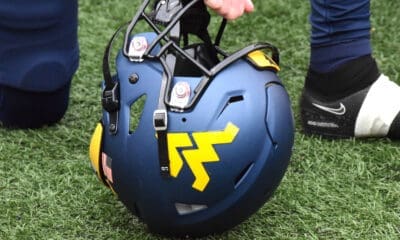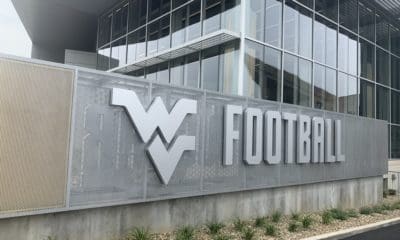WVU Football
Will Grier and the Hunt for a Heisman
In one way or another, everyone is talking about Will Grier. From Athlon Sports to ESPN, West Virginia’s senior quarterback is being hyped as the best quarterback for the 2018 season. He’s even starting to gain momentum as a potential Heisman candidate.
Even the university has added to the movement with its own Heisman campaign video.
Coming 7.7.18#HailWV pic.twitter.com/d0D65NlXia
— WVU Football (@WVUfootball) June 1, 2018
Last week, Grier commented about the possibility of bringing home the most coveted trophy in college football apart from a national championship.
“I think it’s great for the university. I’d love to bring a Heisman to Morgantown. But the main thing I’m focused on is going 1-0 every week.”
It might not be the most important thing on Grier’s mind, but what would it take for him to become the first-ever Heisman winner in West Virginia’s history?
Naturally, there isn’t a simple answer to that question. There is no formula that he must follow to win a Heisman, but we can learn from past winners. First and foremost, Grier already has a leg up by simply being a quarterback. Eight of the previous 10 Heisman winners have been signal callers. However, when you dig into how and why those eight won a Heisman, things become complicated.
In the era of spread offenses, mobile quarterbacks have dominated both on the field and in the Heisman voting. Starting in 2007 with Tim Tebow, all but two of the quarterbacks that have won a Heisman (Sam Bradford 2008, Jamies Winston 2013) were considered mobile and did just as much damage with their legs as they did with their arms. In some cases, having the ability to scramble and run the football can be looked at as the main reason why players like Lamar Jackson or Cam Newton have been named Heisman winners.
Herein lies the problem. Will Grier is athletic enough to know when to escape the pocket and when to pull the ball down and run, but he’s not a guy who relies heavily on making plays with his feet. Grier is going to beat you with his arm. If he’s going to win a Heisman trophy, recent history would suggest he’s going to need to do a lot of that in 2018.
Statistically speaking, four of the last six Heisman winning quarterbacks had one thing in common. Baker Mayfield, Marus Mariota, Jamies Winston, and Robert Griffin III were all able to pass for over 4,000 yards apiece. Everyone but Griffin (37) threw for at least 40 touchdowns.
Grier was on pace to top 4,000 yards and 40 touchdowns last season before he broke his finger against Texas and was sidelined for the final two games of the year. Of course, if Grier stays healthy in 2018, he will be given every opportunity to air it out and do more than just reach the 4,000 and 40 mark.
But he may need to do more than that.
Grier needs to win. And the Mountaineers need to do just more than make a bowl game. They need to compete for a Big XII title and need to be at least mentioned as a playoff contender. We’ve seen in the past that the lack of winning has the ability to ruin a players chances of winning a Heisman. In 2012, Geno Smith posted video game-like numbers during the first five games of the season for the Mountaineers before a 5-game losing streak derailed his Heisman hopes.
Great stats on a good team is a winning formula. You can’t have one without the other if you plan on being named the most valuable player in college football. If Will Grier has aspirations of winning the Heisman, it’s obvious it will need to be a total team effort.







